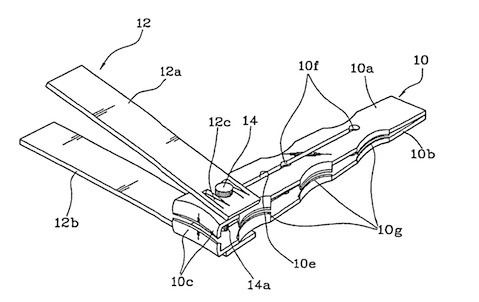
In studying various classic works of non-fiction, I’ve noticed that many do an excellent job of setting up a character’s epiphany. This is no mean feat, as it is quite easy to make those sudden revelations come off as artificial. The key is to make us understand the logical trail that led someone to realize that up until the very moment described, their life was essentially a lie.
I’ll be Microkhaning about lots of these great scenes of epiphany in the coming months, as I hack my way through my next book—a tale in which more than a few life-altering revelations must be handled in a delicate manner. I’m gonna start this occasional series by bringing up a great passage from Barbara Demick’s Nothing to Envy, which I previously mentioned here. It also touches upon the ways in which we define our lives through the technological tools we employ, which gives Demick some nice bonus point for writerly skill:
Information in North Korea wasn’t spread by books or newspapers or movies as much as it traveled by word of mouth. People who didn’t have the means to watch foreign DVDs would hear about them from others. Unbelievable tales spread about the wealth and technological development of neighboring countries. It was said that South Koreans had developed a car so sophisticated that it would start only if the driver blew into a breathalyzer to prove he was sober (untrue), and that ordinary Chinese peasants living across the border were so rich they ate white rice three times a day (true).
A North Korean soldier would later recall a buddy who had been given an American-made nail clipper and was showing it off to his friends. The soldier clipped a few nails, admired the sharp, clean edges, and marveled at the mechanics of this simple item. Then he realized with a sinking heart: If North Korea couldn’t make such a fine nail clipper, how could it compete with American weapons?
That soldier’s epiphany is only related in Nothing to Envy because he later defected—a risky gambit he might never have taken had his pal not somehow obtained that 49-cent metal gadget we all take for granted. Suffice to say I will think of that scene every time I’m in line at CVS and see a bin of cut-rate nail clippers alongside the candy bars, penlights, and other impulse items.


Jordan // Jun 8, 2011 at 4:18 pm
Have you seen the article the Atlantic just ran about North Korean restaurants in other countries staffed by North Korean women? Pretty fascinating that they’ve had so few defections. But then it sounds like the methods of control are also pretty highly refined, not to mention the inherent risks of fleeing your home country with zero resources.
http://www.theatlantic.com/international/archive/2011/06/for-north-korean-state-waitresses-abroad-lives-of-rigor-and-temptation/239943/
Brendan I. Koerner // Jun 9, 2011 at 8:53 am
@Jordan: Interesting piece, thanks for pointing it out. I think the biggest key to limiting defections is North Korea’s policy of punishing the families of the disloyal. The basic policy is that if anyone runs afoul of the regime, three generations’ worth of their relatives are packed off to the gulag. So even in the unlikely event that one of these deeply indoctrinated waitresses thinks about bolting, she’s likely to resist the urge because of what it will mean to those she left behind.
Ian Carey // Jun 9, 2011 at 2:22 pm
That reminds me of a time I played a show with some Cuban musicians… it was a very sunny day and we had some time to kill after the sound check, so one of the Cuban singers and I went to Walgreens to get some sunglasses, and it blew her mind that we wanted some sunglasses, so we just went in and bought them. “In Cuba,” she said, “you can’t do that!”
You Have My Sympathies | Microkhan by Brendan I. Koerner // Apr 27, 2012 at 10:04 am
[…] into the realm of high art. There was Barbara Demick’s retelling of a North Korean’s manicure-related revelation; Bill Buford on a skinhead disco; and, pehaps most memorably, Mark Bowden’s riff on Pablo […]